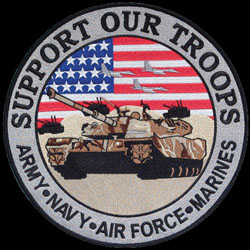 Exclusive Interview by Geno McGahee
Exclusive Interview by Geno McGahee
(Interview conducted in 2008)
“Little films that are beautiful and satiric pop up once in a while, but there are special theaters for that now, but now everything has to be megastar, mega action, or mega shock.”—Jack Jones
In 1978 a horror movie was released called “The Comeback.” It was a slasher film that terrified the audiences before Jason Voorhees picked up his machete and before Freddy Krueger invaded the dreams of teenagers. This is a classic film that did not get the proper attention that it deserved and still many “die hard” horror fans have never heard of it.
The star of this movie was an actor named Jack Jones, but this horror film was just the tip of the iceberg in a career full of television, music, and stage success. He had some big shoes to fill as he followed in the footsteps of his famous father, Allan Jones, and was able to gain his own identity and following.
A career in music seemed like a forgone conclusion considering his father’s success. Jack would be pleasantly surprised when high school friend, Nancy Sinatra had her father, Frank Sinatra, perform at the school auditorium. It was a moment that would be very important to a young musician with big dreams. Those big dreams would stick with Jones as he worked as a gas attendant while continuing his journey to become a star.
Jones would be awarded with two Grammy’s for Best Pop Male Performance with his two hits “Lollipops and Roses” and “Wives and Lovers.” His talent would be recognized by Frank Sinatra who called him “one of the major singers of our time,” and Mel Torme commented that Jack is “the greatest pure singer in the world.” On top of those accolades, a Star on the Hollywood Walk of Fame would be awarded to Jones in 1989.
Jack Jones has recently released a CD paying tribute to Tony Bennett and continues living his dream, performing in Las Vegas to sold out crowds. RSR was able to catch up with Jones and discuss his life and career.
GM: You went to high school with Nancy Sinatra. She actually had her father sing at your high school. How much of an effect did that have on the direction your singing career ended up taking?
Well, no. I was going in that direction anyway. That’s what I wanted to do. I was singing in assemblies in school and I knew that that was where I wanted to go. That was just a surprise. Nancy bringing her father to school was a gesture and it was very nice.
GM: Considering that your father was a singer and an established one at that. How difficult was it for you to make your way into the same field and make a name for yourself?
Well, I was going into a different direction than my father. I wanted to be a pop singer. Actually, I really wanted to be a jazz singer, but it was considered a dumb thing to do. The record companies were urging me to go into the pop world, which was at the time, compared to today, very bland, but it was good and it was obviously well worth it.
GM: Frank Sinatra called you one of the major singers of our time. Mel Torme called you the “greatest pure singer in the world.” How thrilling was it to have their stamp of approval?
Well, it was very thrilling. What Sinatra had said about me, he and I were not friends…we became friends later, and it was unsolicited and a wonderful comment. And it’s not that Torme’s comment was solicited, but he did say that after we became friends and worked on the road together.
GM: You won two Grammy’s. You also have a star on the Hollywood walk of fame. How does it feel to be recognized like this, which is the highest form of recognition really and did you ever think that you would make it this far when you were a gas attendant as a youngster?
Well, it was great to have the dreams when you don’t know where your career would take you. Everybody hopes that they can do everything possible and there are no limitations. The only limitation that I had was that I wasn’t really into dancing. I took dancing for a while because I was supposed to. So I did take some dancing. I didn’t really care if I did much dancing or not. I just wanted to be a singer and an actor.
I regret the fact that I allowed my agents to keep pushing me on the road and every time that an acting thing came up, I wouldn’t be available. I couldn’t get out of what I was doing. So, it was a frustrating time because I really wanted to pursue an acting career.
GM: Do you prefer acting to singing?
It’s different in one way but it’s the same in another. Every song and every lyric is a statement or a piece of dialogue and has to be delivered with meaning. But it is a different experience working in front of an audience as opposed to working in front of a camera, when the audience is there but you never really make eye contact.
GM: One of your projects was a television variety show. I was able to catch a segment when you brought your father on and sang the “Donkey Serenade” together. How important was it for you to bring your dad onto the show and sing together publicly?
Oh, it was very important. That’s how I started. I was in his act in Las Vegas, and he brought me on. To have him on stage at any time possible was important. We had a great time together. It came full circle and it was a lot of fun.
GM: Did you enjoy doing the variety show with the acting and the singing?
Oh yes, absolutely.
GM: You put out a CD in 1997 with covers of hits like “Every Breath you Take,” and “Have you ever loved a woman.” Why did you put out that CD and how did it go over?
It went over great. It got tremendous reviews from college kids…college papers and stuff. They really liked it. It was played on all the college stations. It was really well received. I think that the older group…they weren’t sure what was going on there. It was very eclectic…it had a lot of different kind of songs on it. It wasn’t just one thing that we stuck to. It was really well received though.
GM: Was there any concern about losing a part of your audience due to the different direction that this CD took?
Well, actually, what that was doing was taking a rock-n-roll song and making it into a big band swing thing. So, that wouldn’t have really offended them, and the Paul McCartney thing was a jazz/waltz. Then there were just a couple of things that were there and really didn’t mean anything.
GM: You now perform regularly in Las Vegas. How has the Vegas experience been?
It’s been wonderful. It’s been special…the people there are in such a festive mood. They are just there for a good time. It’s not like the people going out for the evening where they live and they kind of work for the same restaurants and they are thrilled to go to a show because it is something new in town. In that respect, it is great to be playing in somebody’s town, but everybody comes to Vegas, and we get a lot of locals and a lot of travelers and it is great.
GM: In 1978, you were in a horror film called “The Comeback.” I personally loved the movie. Why did you choose to do a horror film and are you a horror fan?
Yeah, I’ve always been an Alfred Hitchcock fan and Brian De Palma… I was the one that actually came up with the title of the movie, “The Comeback.” It was originally called “The Day the Screaming Stopped,” and I said that’s kind of a trite title on a film that is pretty well done. This guy Peter Walker used to do these sorts of movies in England all of the time, and he called me and said “I heard that you are going to be in town at the Palladium and could you do a movie at the same time?” At the time, I was an overachiever and I tackled it and it was tough. I was singing every night for the first two weeks of the movie and the second two weeks of the movie, I was commuting from Birmingham, England, every night and I was really tired. It was funny because you can’t tell that I’m tired in the movie, but the audiences at night could tell.
It was interesting with the movie because I told the director that the film was getting a little bit too gory and he loved it that way and now it’s nothing like you see in the movies now. I thought that he did it well.
I went to the screening for the press and I read your review and I loved what you said about the other actors because I was so impressed with Sheila Keith and Bill Owens. They were just wonderful to work with. They were just old hands at that stuff. Instead of just making faces and just mugging, every scene that they were in, they were just wonderful actors.
Now the British press liked the movie as well…a lot of them did anyway. Peter Walker snuck me into the back of the room for the press screening and they knew Sheila Keith and Bill Owen very well and loved them. To the British press, a horror flick was something that they were very used to seeing. There were a lot of them coming down the line back then and they just loved everything that Sheila and Bill did, but they would express themselves with raucous laughter and I turned to the director and I told him that I had to get out of there because I couldn’t stand the fact that they were laughing at the movie. And they were just having a great time and loving the performances. I just didn’t understand that.
The other time I was sitting at another screening in the front row and the seating went up, and my entire fan club showed up. They filled the theater and they had never heard me say the word “fuck.” That’s something that you would never hear Jack Jones as Jack Jones ever say, and there was that scene where we are sitting on that cliff having a picnic, and she said that you probably believe that that corpse was really there in the wheelchair. I said, believe it? Hey Sunshine, it was fucking there!
So, my entire fan club in unison went “aaaah.” So I stood up in the theater and turned around and faced them and screamed: “Well it was fucking there!” It was a big laugh.
GM: I bet. Were there any more experiences that stand out concerning the filming of The Comeback?
Yes. It was really early in the morning and I was roaming around that house and do you remember that head in the hatbox?
GM: Yes, absolutely.
Well, there was no head in the hatbox. I’m an old method student and acting student and so, he wanted me to see the head in the hatbox and be absolutely sickened by it and then run up the stairs and so I did a real Dustin Hoffman. We did the scene where I saw the head. He put it in there later with all of the maggots, but it wasn’t there and I just made believe that I saw it. But I had to make it look like I was really ill from seeing it, and they had the camera at the top of the stairs, and before I came up the stairs, I told him before I was ready.
I told him to “roll now” and I had my finger down my throat and then I ran up the stairs and I was just about vomiting. That is what Dustin Hoffman would do.
GM: That is dedication.
Well, you have to make it look like it’s happening. Actors are that way. They will do just about anything. One actor said to another actor…she was supposed to cry and she couldn’t get the tears going, so he said: “Pretend your father had a heart attack and he’s going to die any second.” It was terrible! She got angry and said “stop doing that!”
GM: The Comeback was well written, the acting was very good, and it really stands out as a hidden gem to any horror fan. Why do you think that it hasn’t caught on considering the quality of this film?
Because it was, at the time, never released at the theaters in the states, and because of that, it went right to cable. But people like you are now recognizing it. Another generation is recognizing it for what it is. It’s not a masterpiece, but it is a well done film that never got its due because it was basically released in Britain and for one reason or another, it wasn’t picked up here.
GM: I absolutely loved the ending with your character Nick Cooper going crazy, seeing his dead wife in the window. Was there a plan to make a sequel to this had it been really successful?
I never heard that discussed…no, that was just to make you think that maybe we’re all crazy.
GM: The 1970s really produced the best movies across the board. Now, well written movies are scarce. Hollywood seems more interested in CGI and all of the bells and whistles. Why has Hollywood gone in this direction and what does it tell us about the producers and what they think of the audience?
Well, they know that in order to keep the audiences coming into the theaters, they have to give them that high powered experience. Little films that are beautiful and satiric pop up once in a while, but there are special theaters for that now, but now everything has to be megastar, mega action, or mega shock. Also, there is stuff going on. I have a sixteen year old daughter and she has seen everything and that is because the ratings are so loose.
GM: There doesn’t seem to be too much of a chance for a film like 12 Angry Men to come back to the theaters and do really well. Everything that comes out nowadays seems to be mindless fluff. Do you think that we will ever steer out of this direction and go back to good dialogue, good character development, and movies that make you think?
It is very interesting that you mention that movie because I was talking to somebody about a friendship that I had. He’s passed away, but he was in that movie. His name was Robert Webber…a wonderful actor. We worked on a McMillan Episode together, and that was actually right before I did that horror flick. I was actually seen in that McMillan, and they called and asked: Can Jack come over and do this movie?
Movies like 12 Angry Men…they cost too much brain activity in a good way and so the people seem to want to go on a roller coaster ride instead. My daughter took me out for Father’s Day and, of course, I didn’t have a choice of where we were going. She said: “I’m taking you to the movies Dad, and we are going to see Spiderman III.” Fortunately I saw it in an IMAX theater and everything was so dumb and so silly…it was a satire on just about every action movie hero thing.
First of all, the hero was a wimp, which struck me funny. He thought his girl didn’t love him anymore and he got all teary eyed and cried: “Oh please won’t you stay with me!” This is an action hero and he’s doing that, but it was so well done technically that it was fascinating and there I was on the edge of my seat and it caused me to become that kid again in high school that yells things at the screen. My daughter was embarrassed and said “dad please.” Did you get a chance to see the movie?
GM: No, but I’ve heard mixed reviews concerning it. Overall, what did you think of it?
Well, it’s terrible. The heroin is in this car and it’s on a web, and it is falling down through the web and every once in a while a strand lets go and then eventually, it completely lets go, but at the last second a web catches it before it hits the ground. She was screaming bloody murder, and I said after it was over: “That was great. Can I go on it again?”
Then Spiderman has her and they are supposedly making out on this large round web that he’s weaved and they are lying on it like a hammock and there is a real intimate moment and I turned to my daughter and said that that is the epitome of communicating on the web…I mean really bad stuff.
I would see it just for the technical stuff…just for that reason. The technical stuff is so great.
GM: I felt the same way with the recent remake of King Kong. It was a lot of eye candy and most of it was really absurd and when you take away the special affects, you have a relatively empty film.
I never saw that film…
GM: Well, I certainly don’t recommend it.
My goal is to still be alive for the next remake of King Kong.
GM: Well, I hope that you live a very long life, but I don’t think that I can handle another remake of King Kong.
(laughing) No? That bad huh…
GM: Do you follow the sport of boxing?
I don’t follow it enough to really talk about it intelligently, but I know many of the bigger names. I actually met Muhammad Ali on the Jerry Lewis show. I was a regular on that show and Ali came on, and I was a big fan of his.
GM: Do you have anything to say to your fans in closing?
It’s wonderful to have people that are watching and paying attention to stuff that is getting done, like you. You enjoy going back and paying homage or at least finding out and sifting out the good from the heap and I appreciate that and the fact that you discovered this movie and got people to talk about it.

 February 9th, 2014
February 9th, 2014  CEO
CEO  Posted in
Posted in  Tags:
Tags: 



